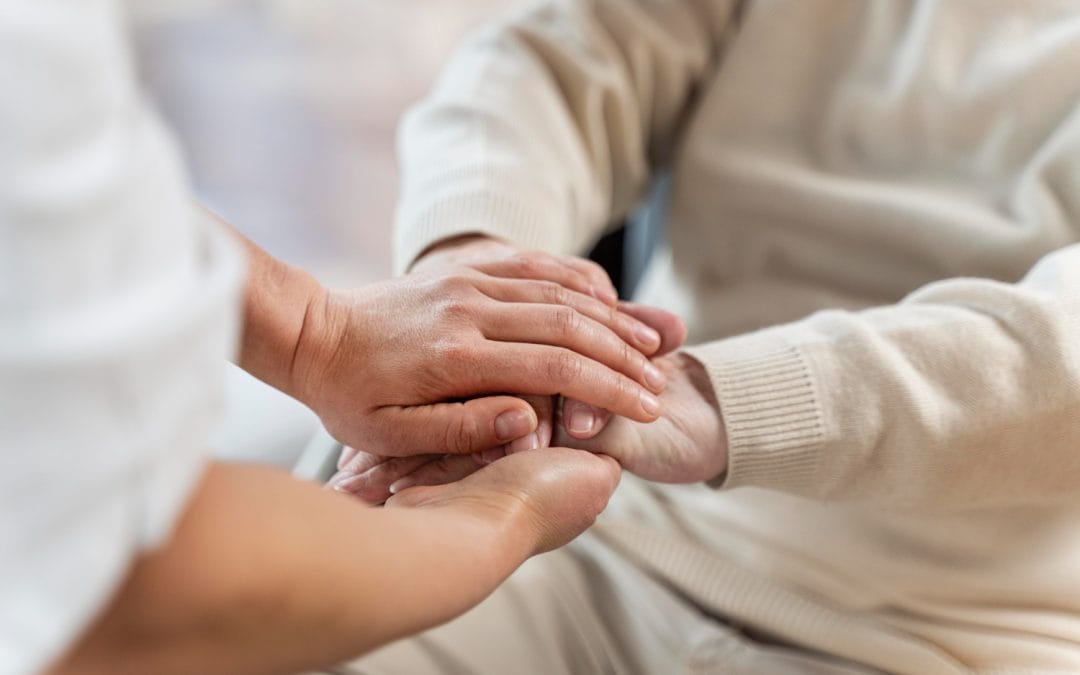Praca jako opiekunka osób starszych może być niezwykle satysfakcjonująca, ale również wymagająca zarówno psychicznie, jak i fizycznie. Dbając o dobrostan, opiekunki mogą nie tylko poprawić jakość swojego życia, ale również zapewnić lepszą opiekę swoim podopiecznym. Poniżej przedstawiamy praktyczne porady, jak dbać o zdrowie psychiczne i fizyczne w tej wymagającej roli.
Znaczenie zdrowia fizycznego
Regularna aktywność fizyczna Regularne ćwiczenia są kluczowe dla utrzymania zdrowia fizycznego. Opiekunki często wykonują fizycznie wymagające zadania, takie jak podnoszenie i przenoszenie podopiecznych, co może obciążać ciało. Regularne ćwiczenia wzmacniające mięśnie, rozciąganie oraz ćwiczenia aerobowe, takie jak spacery czy pływanie, mogą pomóc w utrzymaniu sprawności fizycznej i zapobiegać urazom.
Zdrowa dieta Zdrowa i zrównoważona dieta dostarcza niezbędnych składników odżywczych, które pomagają w utrzymaniu energii i zdrowia. Opiekunki powinny starać się spożywać regularne posiłki, bogate w białko, witaminy, minerały i błonnik. Ważne jest również unikanie nadmiernej konsumpcji cukru i przetworzonej żywności.
Odpowiednia ilość snu Sen jest niezbędny dla regeneracji organizmu i zachowania zdrowia psychicznego. Opiekunki powinny dążyć do regularnego, nieprzerwanego snu przez co najmniej 7-8 godzin każdej nocy. Warto stworzyć sobie spokojne, komfortowe warunki do spania, aby zapewnić sobie odpowiedni odpoczynek.
Utrzymanie zdrowia psychicznego
Techniki relaksacyjne Praca z osobami starszymi może być stresująca, dlatego ważne jest, aby opiekunki znały i stosowały techniki relaksacyjne. Medytacja, głębokie oddychanie, joga i tai chi to doskonałe sposoby na redukcję stresu i poprawę samopoczucia. Regularne praktykowanie tych technik może pomóc w lepszym radzeniu sobie z codziennymi wyzwaniami.
Wsparcie emocjonalne Posiadanie wsparcia emocjonalnego jest kluczowe. Rozmowa z bliskimi, przyjaciółmi lub terapeutą może pomóc w przetwarzaniu trudnych emocji i stresu. Udział w grupach wsparcia dla opiekunów osób starszych może również dostarczyć cennych wskazówek i wsparcia od osób w podobnej sytuacji.
Zarządzanie czasem Efektywne zarządzanie czasem pomaga w uniknięciu poczucia przytłoczenia obowiązkami. Tworzenie harmonogramów, ustalanie priorytetów i delegowanie zadań, jeśli to możliwe, może pomóc w utrzymaniu równowagi między pracą a życiem prywatnym. Ważne jest również, aby znaleźć czas na relaks i hobby, które sprawiają radość.
Balans między pracą a życiem prywatnym
Wyznaczanie granic Wyznaczanie granic między pracą a życiem prywatnym jest kluczowe dla zdrowia psychicznego. Opiekunki powinny dbać o to, aby ich czas wolny był naprawdę wolny od obowiązków zawodowych. Jasne ustalanie godzin pracy i czasu na odpoczynek pomoże w utrzymaniu zdrowej równowagi.
Czas na hobby i relaks Zajmowanie się hobby i spędzanie czasu na relaksujących aktywnościach jest niezbędne dla regeneracji i zachowania zdrowia psychicznego. Czytanie, malowanie, ogrodnictwo czy słuchanie muzyki to tylko kilka przykładów działań, które mogą przynieść radość i odprężenie.
Samoświadomość i samopomoc
Rozpoznawanie swoich potrzeb Opiekunki powinny być świadome swoich potrzeb i sygnałów wysyłanych przez ciało i umysł. Jeśli czują się przytłoczone, zmęczone czy zestresowane, ważne jest, aby podjąć kroki w celu zadbania o siebie. Regularne przemyślenia na temat swojego samopoczucia i zdrowia mogą pomóc w wczesnym rozpoznaniu problemów i podjęciu odpowiednich działań.
Profesjonalne wsparcie W przypadku trudności w radzeniu sobie ze stresem czy innymi problemami emocjonalnymi, warto skorzystać z profesjonalnego wsparcia. Psychologowie, terapeuci i doradcy mogą dostarczyć cennych narzędzi i strategii radzenia sobie z wyzwaniami. Nie należy obawiać się szukania pomocy, gdy jest ona potrzebna.
Znaczenie szkoleń i edukacji
Ciągłe doskonalenie umiejętności Regularne szkolenia i edukacja mogą pomóc w lepszym radzeniu sobie z wymaganiami pracy. Opiekunki powinny korzystać z możliwości uczestnictwa w kursach i szkoleniach z zakresu opieki nad osobami starszymi, technik komunikacyjnych, pierwszej pomocy oraz zarządzania stresem.
Poznawanie nowych metod i technik Świat opieki nad osobami starszymi ciągle się rozwija. Bycie na bieżąco z najnowszymi metodami i technikami może pomóc opiekunkom w bardziej efektywnym i satysfakcjonującym wykonywaniu swojej pracy. Udział w konferencjach, webinariach i czytanie literatury fachowej to doskonałe sposoby na poszerzanie swojej wiedzy.
Podsumowanie
Dbając o dobrostan psychiczny i fizyczny, opiekunki osób starszych mogą znacząco poprawić jakość swojego życia oraz efektywność i jakość opieki nad podopiecznymi. Regularna aktywność fizyczna, zdrowa dieta, odpowiednia ilość snu, techniki relaksacyjne, wsparcie emocjonalne, efektywne zarządzanie czasem oraz ciągłe doskonalenie umiejętności są kluczowe dla zachowania zdrowia i satysfakcji z pracy. Pamiętajmy, że dbanie o siebie jest nie tylko obowiązkiem wobec siebie samego, ale także podstawą do zapewnienia najlepszej możliwej opieki osobom starszym.


Najnowsze komentarze